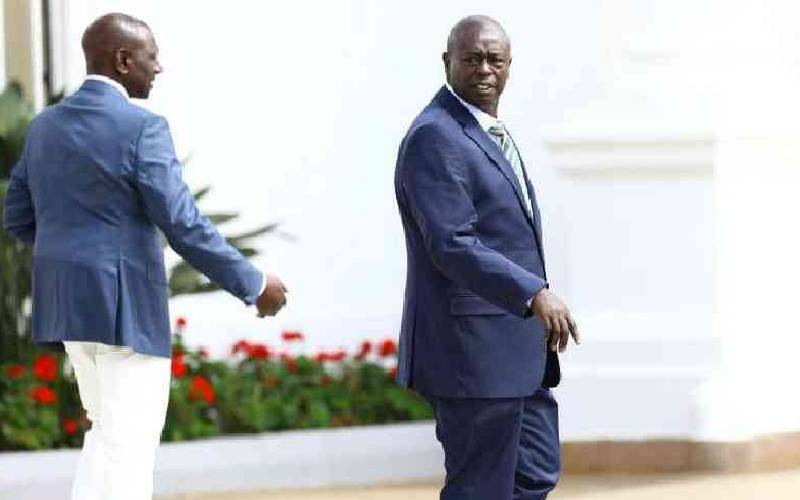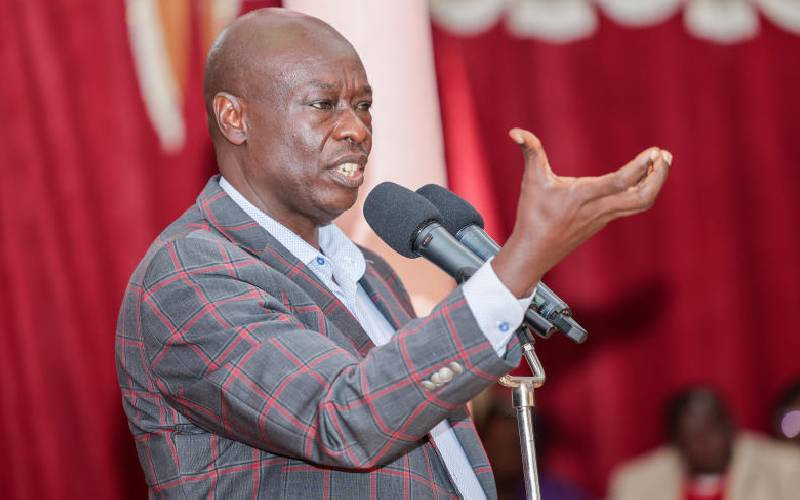 |
|
Lupita Nyong'o PHOTO: COURTESY |
By John Kariuki
Lupita Nyong’o is certainly the international dream girl of the moment, not just because she has just won a coveted Oscar for best supporting actress, she also posseses all the essential factors stardom is made of.
Indeed, the fashion industry quickly noticed her allure as soon as she got on the winning ways and splashed her pictures on glossy magazines. This is bound to continue.
Her natural look, cute in a subtle way (no artificial hair), is a statement of her modesty. She is not afraid to be herself and is ready to work at it.
It is an attribute that Jim Shamoon, the Managing Director of BlueSky Films, noted several years ago when Lupita was struggling to venture into the film industry. His company engaged her as a production assistant on Constant Gardener. Shamoon recalls that Lupita gave no indication that her father (Peter Anyang’ Nyong’o) was a Cabinet Minister at the time. “She was a simple girl who never carried her father’s clout to her job and was extremely committed to her role, a very hard working person,” says Shamoon.
Her triumph is a breakthrough for international film industry that has ushered Africa into the frontline, breaking stereotypes about race and region that have constantly isolated the continent from the big league.
She probably had this in mind on her acceptance speech when she said; “When I look down at this golden statue, may it remind me and every little child that no matter where you are from, your dreams are valid.”
In a country that is pushing for the arts and youth enterprise, Lupita is godsend.
“She is an inspiration to actors to strive for their best and for the film industry to make films that are globally competitive,” said Wambui Kairo, Chairperson of Kenya Oscars Selection Committee.
Essentially, she is affable and knows how to handle interviews, which attracts good media coverage.
Ever since 12 Years A Slave was released, she has been featured by every major US media, including the Hollywood Reporter, Los Angeles Times, New York Times and high profile TV appearances and is easily Kenya’s most popular face at the moment.
But typically, Kenya, has been caught flatfooted and seemingly clueless on how to react to this golden moment and take full advantage of it in all possible ways.
It happened when Sidede Onyulo wooed overseas film audiences and critics for his role in the Oscar Award winning film Nowhere in Africa, which won the best foreign film category. Although he was nominated for awards, Sidede was a people’s star, especially in Germany, where the movie was based.
Media campaign
Later, Oliver Litondo generated good international publicity with The First Grader, but was largely ignored by local institutions even after it had won several international film awards. There is a notion that those in authority do not fully appreciate the effect a co-ordinated media campaign can play.
Stay informed. Subscribe to our newsletter
Yet there are numerous examples from many countries that have enjoyed first time Oscar award.
On the road to the Oscar for Monster, South Africa’s Charlize Theron had the entire country behind her, putting out a cozy media campaign to announce to all and sundry that she was South African.
Obviously, a triumph at the SAG awards is always a good indication of the outcome at the Oscar and anybody with a good sense of the industry begins to prepare for the party.
South Africans did. They not only threw parties in Hollywood, but also made her homecoming a public holiday, with tens of thousands of people waiting to receive and celebrate her triumph. The icing on the cake was a moment with Nelson Mandela. Theron was clearly overwhelmed.
For Kenya, this was a perfect opportunity to forget negative news generated by the country’s relentless political mill and seize the moment and be happy for the success of one of our own.
At this time, the melee at the ODM party elections was really no news, even the KSCE results was really second fiddle to Lupita.
One would have expected a high profile delegation to Los Angeles for the Oscar night – Lupita was already big news, with or without the award.
In a country that is still healing
and still trying to come to terms with the effects of the polarised political landscape, Lupita’s win was (is) really just what the doctor ordered, a case of good medicine that has no possible side effects.
It was also an occasion to brand Kenya, promote national harmony by rallying for a true winner and celebrate the value of hard work, commitment and sheer talent.
There should have been congratulatory messages on huge billboards all over the country, strategically placed media advertisements and on major international show business magazines to share her joy and emphasise that she is Kenyan.
But the country did not and the consequences are telling. Already, Lupita is being described as a Mexican-born Kenyan, which has in a way dimmed the limelight on Kenya. Mexico is clearly having a good share of her fame.
Logically, the reason for dragging the Mexican angle was probably to attract votes from South America and this was all the more reason for Kenya to fight to avoid losing out in the process.
Commendably, President Uhuru did send a good luck message, but those in his government who are expected to take the task of branding in such circumstances, clearly slept on the job.
Rare opportunity
Essentially, the relevant institutions — Brand Kenya, Kenya Film Commission, Kenya Tourism Board and the ministries of Sports, Culture and the Arts, Foreign Affairs and Tourism — require modern thinking people (not academics) who are entertainment industry savvy, able to see a great opportunity and play it to full advantage.
Their job was cut out on the day Lupita was nominated and the international media and style magazines were beginning to see her as a possible winner.
That was the time to assign a team of publicists (even outsource internationally) to draw up a strategy to ensure Kenya was kept in the picture at a time when the whole world was watching.
Sadly, that rare opportunity was lost, but we hope that the domestic angle can still be redeemed with a big homecoming and a motorcade to befit the star she is and without the spectacle of financial handouts that are now a common fair in a country where everything is about money.
Ultimately, such published handouts only help the giver to steal the show and to play down the achievement. It clearly must be her day.
—[email protected]
 The Standard Group Plc is a
multi-media organization with investments in media platforms spanning newspaper
print operations, television, radio broadcasting, digital and online services. The
Standard Group is recognized as a leading multi-media house in Kenya with a key
influence in matters of national and international interest.
The Standard Group Plc is a
multi-media organization with investments in media platforms spanning newspaper
print operations, television, radio broadcasting, digital and online services. The
Standard Group is recognized as a leading multi-media house in Kenya with a key
influence in matters of national and international interest.
 The Standard Group Plc is a
multi-media organization with investments in media platforms spanning newspaper
print operations, television, radio broadcasting, digital and online services. The
Standard Group is recognized as a leading multi-media house in Kenya with a key
influence in matters of national and international interest.
The Standard Group Plc is a
multi-media organization with investments in media platforms spanning newspaper
print operations, television, radio broadcasting, digital and online services. The
Standard Group is recognized as a leading multi-media house in Kenya with a key
influence in matters of national and international interest.







